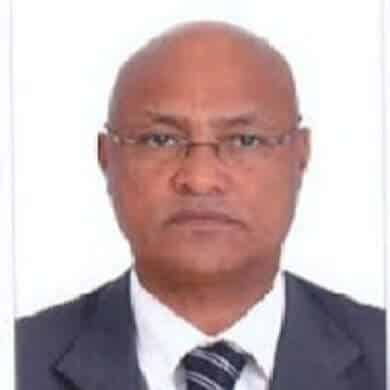By Dr. Suleiman Walhad
December 19th, 2022
Human needs are generally insatiable, and economics is all about how to allocate scarce resources among the people who need them. Economics is defined in many ways, but we shall take the Paul Samuelson, definition of economics as being how people and society in general choose, with and without money, to use productive resources which could be used otherwise and produce goods and distribute them for consumption in the present time and in the future among the various persons and groups of society. The general truth in the matter is that resources are limited, and human wants are limitless. Today he wants this and tomorrow he wants that, and the day after he wants something else and so on.
From Adam Smith, the Scottish philosopher, to this day the study of economics as a discipline is a major field of human endeavor. From managing the household to managing corporations to nations and groups of nations, the study of economics is always at the core of debates and discussions and the science of economics has become a prime subject.
This has led to the rise and fall of socialism and communism, and the continuing struggle of capitalism, which appears to be waning. Successful societies throughout history were those where the strong looked after their weak, where the healthy looked after their sick, where greed was moderated by conscience and empathy for those lesser endowed, and in general, where society shared pains and gains.
For over some two hundred years, the profit element always took the centre stage in human activities. Profit element is to some extent driven by greed, selfishness and the want of always more. The Pareto Law and efficiencies, the pursuit of profits, utility maximization and marginal cost and benefit analysis and many other statistical formulae have been holding the steering wheel of the machinery of life on earth.
It is perhaps time to introduce another alternative – the Islamic alternative to the two extremes (extreme private ownership and extreme state ownership) that have so far plagued humanity during these past two hundred years which has shaped and completely transformed earth and its natural ecosystems. Islamic economics representing private entrepreneurship with state intervention and moderation, should be a point for consideration. Countries that practice the Islamic economics model are obviously developed or developing, and the Gulf Co-operation Council is a perfect example of thriving Islamic economies and Islamic discourse at play. Some may argue that the sudden wealth emanating from oil and gas is the main engine driving these economies. This is certain but it is not the wealth only. It is also how the wealth is being employed that is important. Malaysia is not Arabian, but its economic infrastructure based, in the main, on Islamic economics is another example and so is Indonesia.
Since human wants are insatiable, in Islam there is a hierarchy of human needs or wants. There are the essentials (Daruuriyat) followed by requirements (Haajaat) and finally by luxuries (Tahsinaat). Humans can generally be satisfied by the first two and seek the third category if they can. Applying this hierarchy as a determinant of life at the individual and societal level would perhaps moderate human greed and here is where Islamic banking and finance can also play a role. Banking is generally collection of the scattered funds held by a society in the hands of a few large corporations who redeploy them in the various sectors of an economy. Such deployments could be in the right or wrong industries. Right industries are those which may not harm a society’s general wellbeing while wrong industries are considered those which may be harmful to a society. The objectives of Islamic banking and finance, among others is redistribution of wealth in a society such that wealth does not remain only in the hands of a few but is constantly redistributed through the prohibition of what is generally referred to as interest. This is an amount paid by a borrowing party to a lender on and above an amount lent to it without taking any risk, on the part of the lender.
The Horn of Africa States enjoys a large Muslim population, many of whom currently do not deal with the existing banks and financial institutions, simply because they avoid getting involved in the interest-based systems in place. There is now a growing interest in Islamic banking and finance in the region and this could be very helpful, in improving the economies and financial systems of the region. This would be good for the region for if consumption habits are moderated and use, and disposal of things are done in responsible manners, funds currently unemployed in the hands of a large, and scattered population are collected, and those with economically feasible projects but devoid of finance are financed, it would contribute to the general growth and wellbeing of the people of the Horn of Africa States.
An interplay between the available Islamic resources in the region and the needs of the region would be good for the region, which at present is marred by lack of finance. We must recall the financing of the GERD, the Grand Ethiopian Renaissance Dam, which was financed with local resources when the world turned its back on the project. It was all done through local finance. It is how Islamic funds available in the region should be seen and redeployed for the benefit of the region. The willpower of the region, its financial resources and reasonable redeployment of such resources will contribute to the development of the region. As we say in the horn of Africa States, a brave man dies once, but a coward dies a thousand times, can the horn of Africa States region be able to deploy the Islamic funds in the region for the benefit of the region?

Dr. Suleiman Walhad writes on the Horn of Africa economies and politics. He can be reached at suleimanwalhad@yahoo.com.
